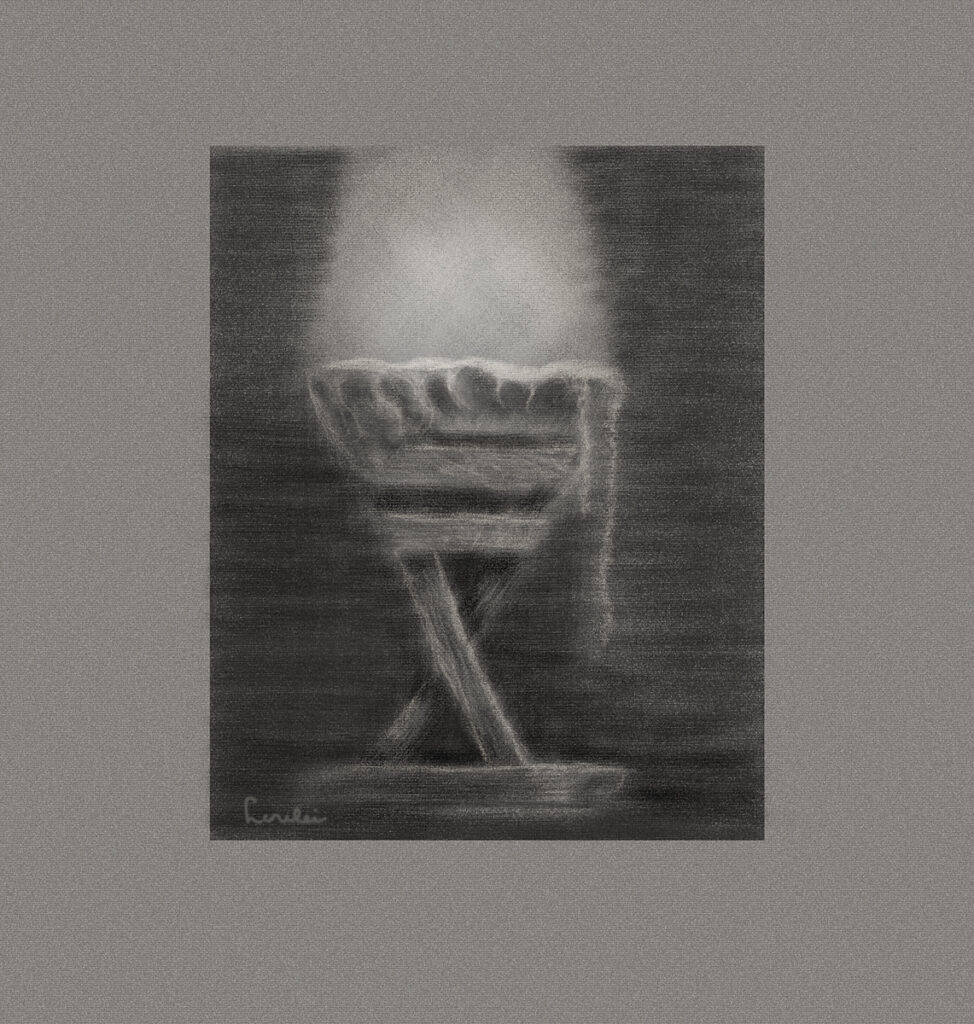 Why would the Creator of the universe lower himself to the lowest human status? If God planned the entrance of his own Son into the human realm, couldn’t he have done better than an animal feeding trough for a makeshift crib?! Why would the Babe enter as a displaced person with nowhere to sleep? Wasn’t it bad enough that he was born in a conquered country subject to the whims of foreign rulers? Why did he have to be born into a poor, working-class family who unexpectedly found themselves without suitable shelter at the time to give birth? From a human standpoint, it was cruel to make Mary deliver in such circumstances. Wouldn’t it have been lowly enough if she had given birth in their own poor, but clean home?
Why would the Creator of the universe lower himself to the lowest human status? If God planned the entrance of his own Son into the human realm, couldn’t he have done better than an animal feeding trough for a makeshift crib?! Why would the Babe enter as a displaced person with nowhere to sleep? Wasn’t it bad enough that he was born in a conquered country subject to the whims of foreign rulers? Why did he have to be born into a poor, working-class family who unexpectedly found themselves without suitable shelter at the time to give birth? From a human standpoint, it was cruel to make Mary deliver in such circumstances. Wouldn’t it have been lowly enough if she had given birth in their own poor, but clean home? 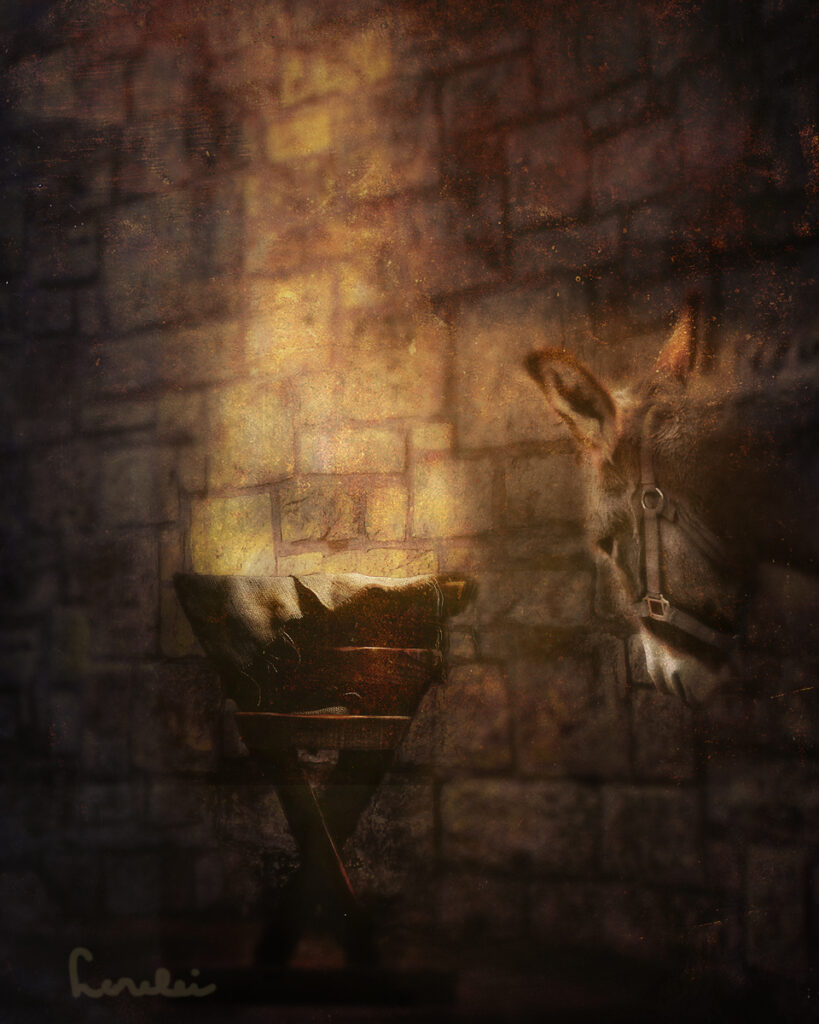
The manger was for us. Oh, I know, we Americans with a roof over our heads can’t imagine we would need such a lowly Savior. We would have been welcomed into Joseph’s home in Nazareth to visit the Baby. We don’t smell bad like the shepherds who might not have been welcome in better conditions. But it wasn’t just for the shepherds’ sake that he was in a shelter for animals easily accessible to the lowliest of society. It was for our sakes, too. The unusually humble beginning was a picture of what his entire life would look like. He started out and continued to be humble and lowly. We condescendingly nod our heads at this altruistic gesture, but we don’t see ourselves as needing this kind of Savior. Yet it was this humility that allows us to know him.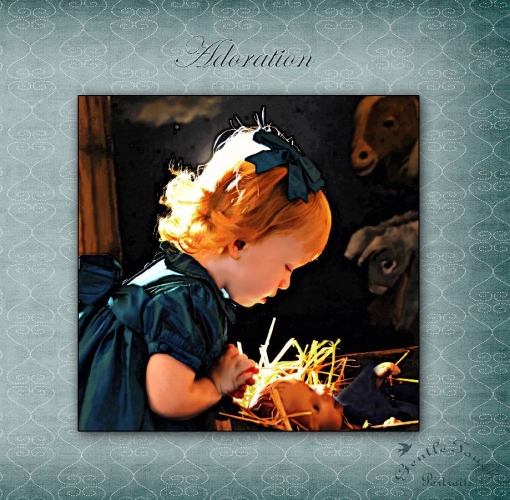
“ learn from me, for I am gentle and humble in heart, and you will find rest for your souls.” Jesus in Matthew 11:29
It is because Jesus is humble that he invites the likes of us to learn from him. Oh, yes, we’re nice people and haven’t killed or stolen like a common criminal. But to the One who sees the heart, filth is deeply embedded in all of us. What about the pride that we can do this or that better than someone else? Or we know more than another person? Or we’ve made better choices than that person? Yet Jesus is humble enough to associate with even us who have covered up our pride, fear, and unkindness. He invites us close in spite of ourselves. And in that closeness we find rest. Rest from pretending, hiding, trying, and performing.
And besides being our own enemy, who of us has never been bruised by life? Every one of us, even the most coddled, has been damaged, battered, and even sometimes crushed, shattered, and broken by loss and pain. Would we turn to a distant god who never went through what we’re going through? Or would we eagerly turn to the One with scars and a gentle heart for sufferers like himself?
“He will not fight or shout or raise his voice in public.
He will not crush the weakest reed (bruised, battered, bent, broken, crushed, damaged, shattered reed)*
or put out a flickering candle. (Smoldering, dimly burning, weak flame, dying flame)
Finally he will cause justice to be victorious.
And his name will be the hope of all the world.” Isaiah 42:1-4
The manger foreshadowed that he would be accessible to the weak because he experienced weakness. He would be available to those who were despised because he was despised. He would welcome those who were rejected because he was rejected.
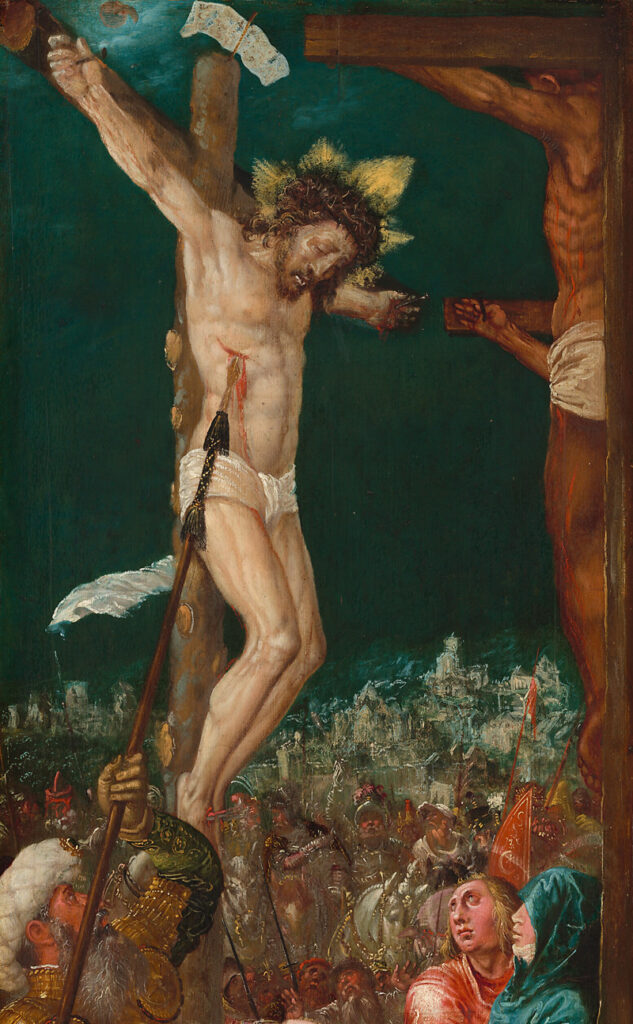
“He was despised and rejected— (avoided, left alone, spurned, forsaken, shunned, looked down on, regarded as if nothing, of no importance)
a man of sorrows, acquainted with deepest grief.
We turned our backs on him and looked the other way.
He was despised, and we did not care. (Disrespected, held of no account, unnoticed, not regarded, considered worth nothing, not valued, turned away from in disgust).” Isaiah 53:3,10
We might not consider ourselves rejected now. But the time may come at the end of our lives when we have lost those closest to us and we feel left alone, forsaken, and of little importance. What if we experience an unwanted divorce? Or we move and can’t seem to find our place in the new location? Who will we turn to? The One who also was forsaken and considered disposable. We may be important now, but when we lose our position, the Man who was disrespected and unnoticed will come close. We may not be grieving now, but when loss and pain ambush us we will have a deeper appreciation for the Man of sorrows who was well acquainted with grief.
Maybe another reason for the manger might be the beautiful picture that those who believe in spite of the impossibility, the uniqueness, even the absurdity of the story of Jesus are welcomed in. It certainly wasn’t lost on the shepherds that a baby wouldn’t normally be found in a feeding trough. It surely surprised them that their long-awaited Deliverer would be born without warning in such humble circumstances. They might have even wondered about the fact that they were picked to get an angel visit when others more important weren’t. But they believed in spite of how strange it seemed. So they hurried to find him, and they weren’t disappointed. To this day, the whole birth of Jesus story sounds unusual at best, and strange and cruel at worst. Humanly, it just doesn’t make sense. But when we submit and let God do things as he chooses, we, like the shepherds, come with anticipation and trusting hearts and find joy like no other.
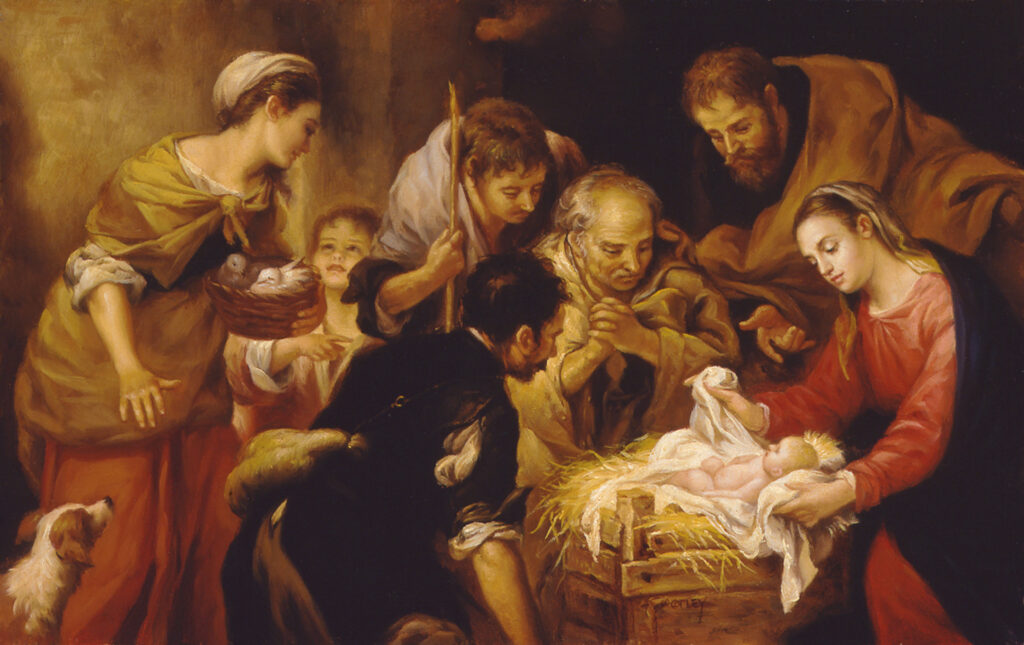
Adoration of the Shepherds by Ed Copley
“The shepherds returned, glorifying and praising God for all the things they had heard and seen, which were just as they had been told.” Luke 2:20
The manger is for us! It pictures the humility and accessibility of a Savior who experienced human life in all its joys and darkness. He understands us and welcomes us. All that is required is our willing hearts to come close in faith.
*The synonyms in these verses were taken from different translations of the Scripture verses.
Photo credit: The manger is from a photo by Greyson Joralemon on Unsplash free images and digitally hand adapted by me
Photogenic donkey is owned by our daughter.
Past Christmas blogs:
What treasures , words to jar the memory, restore the hope , anticipate
All that is to come.
The wonders of the manager, for us.
Thank you, Jesus.
Yes! Amen!